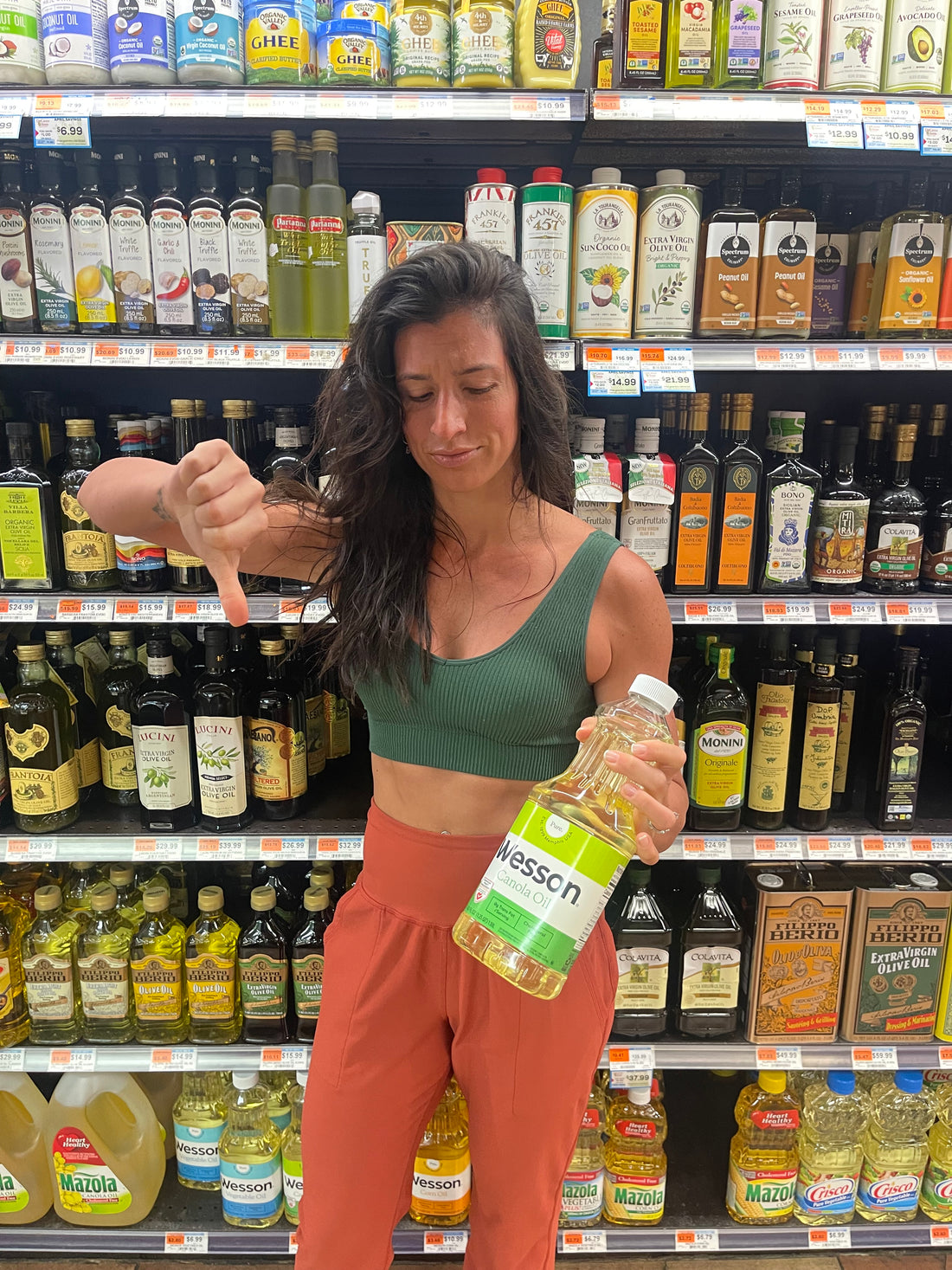Seed oils have lately been a hot topic, and rightfully so. These are some of the most dangerous cooking agents, pushed by the corporate food industry because of their cheap production costs compared to real, edible alternatives such as butter, ghee, tallow, or extra virgin olive oil. We understand that being health-conscious in a world that is grossly misinformed can be challenging. It may draw curious looks or judgments when you're seen barefoot in the park, getting grounded, or when asked about what you use for skin care and you respond with 'beef fat.' It may even arise when you tell a server at dinner that you have a severe allergy to most oils, requiring your food to be cooked in butter or extra virgin olive oil, and cannot consume anything contaminated by other oils. We get it because we live it. If it was easy, everyone would do it. On your journey to freedom and a healthier life, you must establish some 'non-negotiables.' Whether you're at a wedding, on vacation, or at a friends’ house for dinner, these 'non-negotiables' must be upheld. Avoiding seed oils is our number one non-negotiable.
What is considered a “seed oil”? The most common seed oils on the market today are:
- Canola Oil (Rapeseed Oil)
- Vegetable Oil
- Soybean Oil
- Sunflower Oil
- Corn Oil
- Safflower Oil
- Palm Oil
- Peanut Oil
- Rice Bran Oil
- Grapeseed Oil
Many olive oils should also be avoided as they are commonly diluted with canola oil or other seed oils. If it's not Extra Virgin Olive Oil, avoid it at all costs! Interestingly, these seed oils are restricted for use in food in Europe and other regions due to their toxicity, yet they continue to be a significant part of the American diet and are even present in the majority of baby formulas.
It's worth noting that most seed oils were not widely consumed 100 years ago and were instead used as machine lubricants. Yet presently, they are promoted as “healthy.” The primary concern with these seed oils lies in their processing methods. After undergoing a high-pressure press, the oil takes on a gummy consistency, and hexane, a known neurotoxin, is used to de-gum it. Subsequently, the degummed oil is heated to over 400 degrees Fahrenheit, leading to rancidity. To mask the rancid smell, a deodorizing process with sodium hydroxide, a potential carcinogen, is employed. The final step involves bleaching the oil to achieve clarity and enhance presentation before packaging it in plastic bottles for shelf placement. As if it couldn’t get any worse, before the methane, bleach, and sodium hydroxide, most of these oils come from Genetically Modified Organism (GMO) crops.
The consumption of these highly processed seed oils will cause significant inflammation throughout the body. When consuming a substance that is not “real food,” which is to say it was not consumed by humans as we evolved over time, our bodies can't recognize what it's ingesting, and this creates inflammation as the body responds to fight this unfamiliar substance. Seed oils, being high in Omega-6 fatty acids and rich in linoleic acid along with the known carcinogens contained in industrial seed oils, can result in chronic inflammation.
Another adverse effect from seed oils is autoimmune disease. An unbalanced ratio of omega-6 to omega-3 fatty acids raises oxidative stress levels and is associated with metabolic disorders, heart disease, and several types of cancer. Industrial seed oils undergo breakdown and oxidation, producing harmful compounds like 4-hydroxynonenal, malondialdehyde, and acrolein. Overconsumption of omega-6 fatty acids leads to female infertility, reduced levels of testosterone, and other hormone disruptions.
Obesity and diabetes have also been linked to the regular consumption of seed oils as they are rich in trans fats and capable of inducing insulin resistance and can raise triglycerides, which measure fat content in the blood, to life-threatening levels. Imbalanced intake of omega-6s to omega-3s through the consumption of industrial seed oils is one of the main causes of depression, anxiety, decreased cognitive function, mood issues, Alzheimer’s, and dementia.
Abundant amounts of omega-6 fatty acids can substitute for the essential omega-3 fatty acids crucial for the human eye which leads to deteriorated vision as well as osteoarthritis. Omega-6 fatty acids elevate pro-inflammatory mediators linked to asthma. Regular consumption of seed oils also leads to heightened sensitivity to sunlight, leaving your skin more susceptible to being burned more severely. Many people who have eliminated seed oils completely from their diet have reported higher tolerance for sunlight, even claiming they don’t have to apply sunscreen when exposed to sunlight.
The toxicity of seed oils cannot be emphasized enough, and that’s why it’s our #1 non-negotiable. We don’t care where we are or who we’re with and what they think about us; we always do our best to ensure that we’re not putting that poison into our bodies. We hope that after reading this, you have a heightened sense of urgency to cut seed oils out of your lives too.

